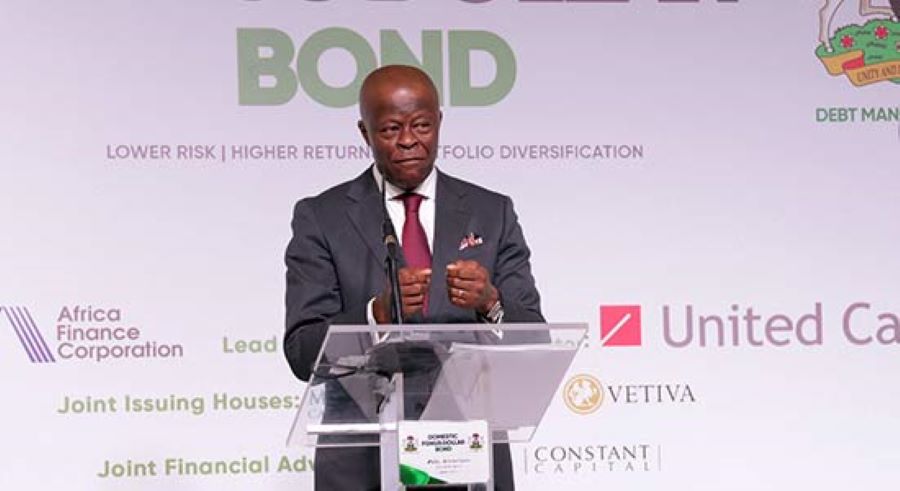The World Bank has urged the Nigerian government to address the main obstacles impeding the growth of the private sector, pointing out that changes in these areas may open up billions of dollars in investments and generate thousands of new jobs.
Nigeria continues to be Africa’s largest economy, despite the difficulties facing its private sector, according to Dr. Ndiame Diop, the World Bank’s Country Director for Nigeria, who spoke Thursday at the Country Private Sector Diagnostic and Stakeholder Engagement in Abuja.
But, he pointed out, the nation lags behind nations like South Africa and Indonesia and receives very little foreign direct investment in comparison to its potential.
Despite all of the difficulties the Nigerian private sector faces, that is accurate. According to Diop, this is true even though Nigeria receives a very small amount of foreign direct investment (FDI) in comparison to its potential and nations like South Africa and Indonesia.
Removing barriers to private sector participation could greatly increase economic growth, he emphasised, adding that the final CPSD report would be out in a few weeks.
“Now consider what might happen if steps were taken to eliminate the difficulties and barriers that the private sector faces in numerous domains. Imagine the direction the economy will take. “This is the ideal moment to truly address these limitations that the private sector is encountering,” he said.
“The investment environment has already improved quite significantly from a macroeconomic perspective with macro stability, this exchange rate market, and access to FX being much, much more available than before, and in general.
“Now, this is the time to leverage that improved macroeconomic environment by doing sector reforms that will unlock investment and create jobs,” he said.

He claimed that targeted reforms in four key sectors—ICT, agribusiness, solar energy, and pharmaceuticals—could unlock over $20 billion in investments and create over 600,000 jobs.
He went on to emphasise particular investment forecasts, saying, “For instance, in the ICT sector, up to $4 billion in investment could be unlocked and more than 200,000 jobs could be created.
“The reason for this is that Nigeria has set a lofty goal for the rollout of the Internet. Investment will become available if you reach that goal, but it won’t happen right away. It will necessitate revisions.”
According to him, solar power investments may reach $8.5 billion, producing 129,000 employees, while agriculture reforms might release $6 billion, creating 275,000 jobs. Over 30,000 new employees and $1.6 billion in revenue might be generated by the pharmaceutical sector.
Diop highlighted the limitations in the ICT industry by pointing out that between 30 and 70 per cent of the expenditures associated with a broadband rollout in different states are attributable to excessive, erratic, and irregular right-of-way fees, taxes, and informal charges.
According to him, resolving this issue will greatly increase investment in ICT infrastructure, enabling Nigeria to reach its goals for broadband expansion.
“However, when you roll out broadband across states, the high, erratic, and inconsistent right-of-way fees, levies, and informal charges… represent between 30 and 70 per cent of the cost.” Therefore, taking care of this alone would undoubtedly alter the situation in terms of attracting investment and furthering the government’s rollout goal,” he said.
He recognised that there had been some progress in overcoming this obstacle, pointing to continued talks with state governments that were aided by the World Bank’s Saver programme.
Additionally, he emphasised the necessity of enhancing access to wholesale fibre networks, addressing problems like theft and vandalism, and addressing the scarcity of funding for rural broadband expansion.
Diop also disclosed that an ambitious proposal to co-finance the construction of fibre-optic networks throughout Nigeria was being worked on by the World Bank, the International Finance Corporation, and other development partners.
Wale Edun, Minister of Finance and Coordinating Minister of the Economy, said the Nigerian government is grateful for the IFC’s assistance in important areas like infrastructure, medicines, and agriculture.
He cited previous partnerships, such as the $70 million SME finance provided by First City Monument Bank and the $1.2 billion funding for Indorama’s development of fertiliser production.
“The IFC has been instrumental in sectors like fertiliser processing, SME financing, rural electrification, and the kinds of projects that they have helped us finance with private sector leadership,” Edun stated.
“The Nigerian government greatly appreciates the IFC support in key sectors we heard about today, about agriculture, about infrastructure, and pharmaceuticals, for example.”

